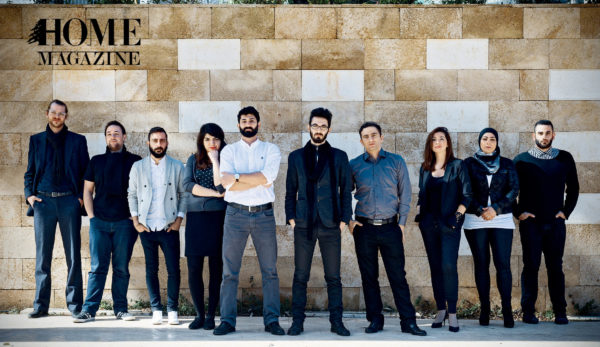How are you spending your summer in Lebanon?
There are so many things to do, like tanning at the beach, seeing friends and family, visiting the beautiful tourist sites, or checking out the nightlife in Mar Mikhael, Batroun and dozens of other places where the music is booming. It’s so easy to get caught up in all the activities and entertainment that we forget about another pastime that should definitely make it at the top of your “to do” list in Lebanon this summer.
Volunteering. Helping out at a local organization is a great way to delve into the culture, see the country and get to know more people. You will get a special feeling of joy when you contribute to the happiness and well-being of others. In addition, you can strengthen your skills, make new friends, see the country and enjoy the culture in new ways.
You can look back at my article in HOME for Christmas (HOMEforlebanon.com) for a fuller explanation of the reasons to volunteer, especially if you are a Lebanese from abroad.
You can volunteer as an individual, or a group of family or friends. It is even possible to volunteer if you are a high school or college student with few skills, but a lot of youthful enthusiasm. You can put yourself forward if you are older with lots of experience, contacts and special skills that organizations or startup businesses can benefit from. And you can volunteer if you are elderly or disabled – sharing your abilities and experience with a focus on what you can do, not what you can’t. We hope to share many stories of volunteers in future issues of HOME for Magazine.
What makes a great volunteer? Well, here’s the story of one such person.
Mary Jane Fandrich is a 75-yearold volunteer who calls herself a professional grandmother. She was born in Damascus in 1939, and, since her mother was American, her birth was registered in the U.S. as in Beirut, Syria. She volunteers for HOME of Hope in Kahale near Aley. HOME of Hope combines the roles of an orphanage, school, safe house and foster HOME for 70 children aged 3-18. Some have stayed for many years – some stay only a matter of days. HOME of Hope doesn’t ever bring children to the orphanage on its own. They come to the HOME either directly after being picked up by the police as beggars and street children, or from the courts due to unhealthy HOME environments. And those that come are brought in any time of the day or night. HOME of Hope is not a nongovernmental organization (NGO), but a program of the Lebanese Evangelical Society, which provides the facility though not much else.
However, this means that HOME of Hope doesn’t have to deal with all the licensing issues on its own. The program is registered in, and partially funded by, the Ministry of Social Affairs – but the ministry will only fund Lebanese children, and many of the children at HOME of Hope don’t have IDs. The facility seems to be an old school or something of the sort, with lots of rooms including dorms separated by age and gender, and rooms for activities and classes. They seem to have enough beds, clothes and blankets donated by different schools and charities. What HOME of Hope is short of is staff. It takes a lot of staff to supervise, teach, organize activities for, feed, and otherwise manage 70 children of different ages, many of whom have serious psychological and emotional problems, and have had little formal education. The children, especially the older ones, help a lot, but there is still far more that needs to be done than there are people to do it.
Mary Jane learned about HOME of Hope in 2011 on a mission trip organized by different Protestant churches in the U.S. People in her church in Dallas, Texas knew she was of Arab heritage (her father is
Syrian and much of his family was educated and lives in Lebanon). They nominated her to participate in the trip. The group stopped at HOME of Hope before heading south on its philanthropic mission, and Mary Jane was inspired to help. Returning to Texas, she encouraged her church to send financial support to HOME of Hope. In 2014 she came and volunteered for five weeks. Mary Jane is a financial planner, and when she retired recently she decided to come for a longer stay. So this January she came back to Lebanon to volunteer for six months – with her church in Texas supporting her.
Mary Jane is a great volunteer at HOME of Hope because she not only cares, but she CAREs. CARE is an acronym I coined to remind people of the four main attributes of a great volunteer.
Capable – Most people are capable of a lot of things – and that includes 5-year-old children, 85-year-old elders, and people with a broad range of physical, mental and social disabilities. All that is required for a volunteer is to be capable of what you are volunteering for. So what does it take to be a capable professional grandmother? Love, hugs, smiles, empathy, understanding and a lot of patience. Mary Jane has all of these.
Available – This is often a problem for people who want to volunteer, especially if you work or study. In those cases, you might only be available in the evenings or on weekends. And there are many one-time or regular weekly volunteer opportunities that could fit your schedule. But vacations, especially summer vacations from schools and universities, offer much longer periods in which to volunteer.
So you might consider spending the summer in Lebanon – or maybe one or two months of the summer. Available also refers to being able to get to where the volunteer opportunity is.
That may mean having a car or taking public transportation. And if you are living abroad and want to volunteer in Lebanon, it means figuring a way to cover airfare. Organizations in Lebanon rarely have the means to cover transportation for volunteers from abroad, so the volunteer needs to cover those costs or find others who will support their travel. Other costs include accommodation, though some organizations that need volunteers can help their long-term volunteers with that. Since Mary Jan is retired, she has lots of time available to volunteer, like most retired people. She can afford to volunteer for six months because her church in the U.S. covered her transportation costs. And since she stays at HOME of Hope, her living expenses and transportation needs are minimal. She only has transportation costs when she wants to leave Kahale and travel elsewhere in Lebanon.
Reliable – That’s one of the biggest problems of volunteering. A lot of volunteers are unreliable. They figure that since they aren’t being paid and are free to volunteer or not, they don’t have to make a serious commitment. If something better comes up during the time they have agreed to volunteer, they often don’t even bother to let the organization know. Such people give volunteers a bad name and make organizations reluctant to take them on. Volunteers need to understand that they are free to volunteer or not, but once you commit yourself, you are responsible to fulfill that commitment.
Organizations count on you. The people you help count on you. If you can’t make it, you need to let them know as soon as possible, try to find a replacement and try to reschedule.
Mary Jane is very reliable. She’s ready to help early in the morning, and is willing to help until late in the evening. If she says she’s going to help the English teacher, she’s there on time, for the full time, ready to help.
And if something else comes up that she wants to do, she sees if she can reschedule, but if she can’t, she makes sure to be there. A reliable volunteer is worth 100 people who aren’t reliable.
Engaged – It’s important that you volunteer for something you really care about. Maybe it’s cancer because you are a cancer survivor yourself. Maybe it’s diabetes, because your father and other relatives have diabetes.
Maybe it’s the environment, because you want protect the natural beauty of Lebanon. There are hundreds – even thousands – of good causes to volunteer for. And if there isn’t an organization concerned with the cause you care about, you can join with other like-minded people to start one. But most important, you need to discover your passion and then find a way to volunteer for it. In a year or two you may become passionate about some other cause, and figure out a way to volunteer for it. Or you can decide on volunteering for an organization for other reasons and then develop a passion for it. As for Mary Jane, she’s passionate about HOME of Hope and the important work it does. She loves the children, she believes in the work the staff are doing and she enjoys being a part of it.
So, you see, Mary Jane CAREs – she is
Capable
Available
Reliable
Engaged
So it is time to ask: What do you CARE about?
• What are you Capable of doing?
What skills and abilities, hobbies, and talents do you have that you can share as a volunteer?
• When and where are you Available to volunteer? Can you spend a month or two of your summer volunteering in Lebanon or do you have one afternoon each week when you can volunteer?
Do you want to volunteer in your village or would you like to volunteer somewhere else in the country?
• Are you Reliable? Can an organization trust you to do what you commit to doing?
• And what causes could engage you? What is your passion that you can volunteer for – music, sports, the environment, the elderly, refugees?
The possibilities are endless.
While Lebanon does not have a national volunteer center at this time, there are ways to find opportunities that fit your time, interests and abilities. For information about volunteer opportunities in Lebanon this summer, you can check out my website at http://learningtocare.com/ volunteer. Or go to Lebtivity at htttp://www.lebtivity.com. Or check out the Civil Society Directory at http://daleelmadani.org/. See which organizations interest you and write to them to tell them about your abilities, availability and interest in volunteering for them.

































